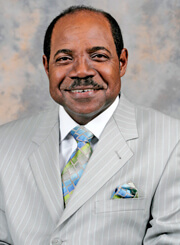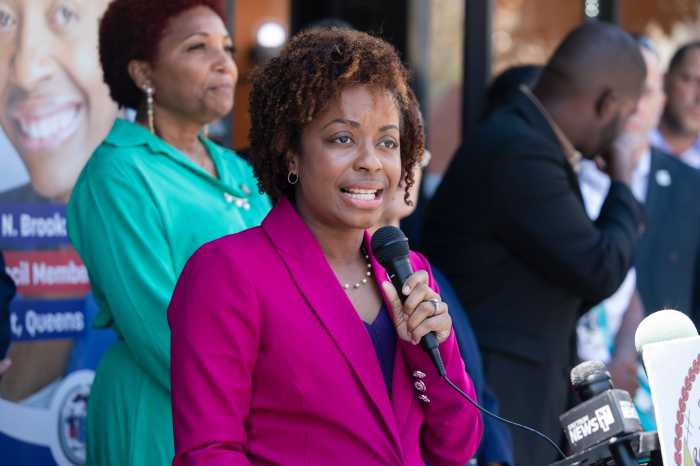Jamaicans on the island, abroad in Europe, Africa, Asia and throughout the diaspora are split in deciding the merits of a gift from the British government to build a new prison for the sole purpose of housing Jamaicans convicted of violating British laws.
All abuzz with arguments that agree or dispute the audacity of British Prime Minister David Cameron to announce partial funding of a high-tech correctional facility in Kingston with a $37.9 million gift, many have called into radio programs, register opinions on the worldwide web or written their opinions to numerous newspapers throughout the world and particularly in England and Jamaica.
Some claim that a prison is urgently needed there, as deplorable conditions prevail throughout the 18th century structures which many refer to as dungeons.
Since issuing terms of the deal to the government while on a one-day visit to the Caribbean island, the UK leader has received numerous letters from influential individuals incensed that a discussion on reparations was not on the agenda and concerned that a return to slavery might have motivated the prison deal.
Although Prime Minister Portia Simpson-Miller has not openly addressed the issue, Andrew Holness, parliamentarian and opposition leader vigorously criticized the ruling People’s National Party calling them a “spineless government that will sell you out.”
In a strong condemnation of the deal, the Jamaica Labour Party (JLP) leader said his party objects to the proposed prisoner transfer deal with Britain.
The opposition leader said he knew that some people were “salivating at the prospect of building a prison because they know how much money they gwi mek off it.”
“The essence of prison reform is not to build more prisons but to reduce the number of people who we incarcerate at the expense of the State such that we can throw down prisons. That is prison reform.”
“So if you tell me about reforming the correctional services, then at the end of that discussion I must hear how many prisoners less will be burdening the taxpayers of this country and how many prisons we are going to close. The essence of reform and rehabilitation is to prevent our young men especially from committing crimes that they end up in our penal system. Prisons are not the solution to Jamaica’s crime problem,” Holness said.
“There are other things that that 25 million pounds could do in the interest of Jamaicans and in the interest of the Jamaican tax payer. I don’t want the Jamaican people to believe that there is only one way to do this because that is what the PNP is trying to let you think that there way, is the only way. There is another way, a better way, a better action that has served you well in the past and will serve you well in the future,” the opposition leader said.
Holness added that his primary interest is to protect the “interests” of Jamaicans.
“You Sir, are a Briton, not a Greek,” Sir Hilary Beckles, UWI Vice Chancellor wrote in a letter to the UK PM.
“We have no reason therefore to fear what you bear. But we do ask that you recall that the Caribbean region was once your nation’s unified field for taxation, theatre for warfare, and space for the implementation of trade law and policy. Seeing the region as one is therefore in your diplomatic DNA; and this we urge that you remember.”
The chairman of CARICOM’s Reparations Commission added that that Cameron’s country should “play its part in cleaning up this monumental mess of Empire.”
“We ask not for handouts or any such acts of indecent submission. We merely ask that you acknowledge responsibility for your share of this situation and move to contribute in a joint program of rehabilitation and renewal.”
Knighted by Queen Elizabeth II, Beckles did not mince his words exalting gains made by an independent Jamaica during the 53 years since it claimed rule from Britain but also noted that the “burden of the inherited mess from slavery and colonialism has overwhelmed many of our best efforts. “
“You owe it to us as you return here to communicate a commitment to reparatory justice that will enable your nation to play its part in cleaning up this monumental mess of Empire.”
Three-term Jamaican Prime Minister Percival J. Paterson also penned a damning dissent of the UK deal saying:
Dear Prime Minister Cameron,
We who belong to the Commonwealth Parliamentary Association and cherish the value of the Westminster tradition should seek continually to foster rather than diminish it.
Given the honor which you were afforded to address the joint sitting of Jamaica’s Parliament on Tuesday, September 30, 2015, the traditional parliamentary right of debate and reply could not be exercised by any of our members who were in attendance. As I watched your presentation, knowing those on both sides of the aisle as I do, their good behavior which you commended ought not to be interpreted as acquiescence to everything you said.
The gifts you presented in Gordon House were both welcome and timely. Only the shrewdest observers of parliamentary custom would have noticed that the package you offered there discreetly omitted any mention of a 25 million pounds contribution for the building of a prison.
That was understandable, as what exists constitutes no more than a non-binding Memorandum of Understanding. You rightfully appreciated that its inclusion would have been premature as the framework agreement has to be followed by further intensive negotiations and then the requisite legislation.
You wisely chose instead to add there the announcement of 30 million pounds to make our hospitals more resilient to natural disasters. Given our vulnerability and the danger of climate change, this donation was highly appreciated.
Despite your recognition of not being “the only show in town”, the words of strengthening the bonds of friendship and the down payment you brought would have been well received throughout the entire Caribbean.
Prime Minister, the most noble intentions were jarred by those portions of your address which asserted that slavery was a long time ago in the historical past, and “as friends we can move on together to build for the future.”
Your host, the Most Hon Portia Simpson-Miller, in her gracious welcome referred to the difficult issue of reparation which should be discussed in “a spirit of mutual respect, openness and understanding as we seek to actively engage the UK on the matter.”
You chose instead to throw down the gauntlet.
Mere acknowledgment of its horror will not suffice. It was and still is a most heinous crime against humanity — a stain which cannot be removed merely by the passage of time.
Those who perished in the Middle Passage and the fatal victims on the sugar plantations were the victims of genocide. This is a crime in accordance with international law.
The attempt to trivialize and diminish the significance of 300 years of British enslavement of Africans and the trade in their bodies reflect the continued ethnic targeting of our ancestors and their progeny for discriminatory treatment in both the annals of history and in the present.
The 180 years of slavery in Jamaica remain fresh in living memory. There are people alive in Jamaica today whose great grandparents were a part of the slavery system and the memory of slavery still lingers in these households and communities.
Those 180 years were followed by another 100 years of imposed racial apartheid in which these families were racially oppressed by British armies and colonial machinery. The scars of this oppression are still alive in the minds and hearts of millions of Jamaicans.
To speak of slavery as something from the Middle Ages is insufficient. For our communities, its legacies are still present in their memory and emotions. To reject this living experience is to repudiate the very meaning and existence of these people’s lives.
How can we simply forget it and move on to the future? If there is no explicit admission of guilt now, when will be the proper time?
You argue that Britain abolished the slave system and the credit for this resonates in the British Parliament today and shows British compassion and diplomacy.
Where is the prior confession that Britain fashioned, legalized, perpetuated and prospered from the slave trade?
Indeed, the facts speak to a different explanation. In Jamaica, the enslaved led by Sam Sharpe tried to abolish slavery themselves three years before your Parliament acted. The British Army destroyed these freedom fighters and executed their leaders.
This attempt to destroy the seed of freedom and justice in Jamaica continued for another 100 years. In 1865, the peasants sought to occupy Crown lands in order to survive widespread hunger. The British Government sent in the army and massacred those people, executing Paul Bogle, George William Gordon and other leaders.
Furthermore, the British Act of Emancipation reflected that the enslaved people of Jamaica were not human, but property. The 800,000 Africans in the Caribbean and elsewhere were valued at 47 million pounds. The government agreed to compensate the slave owners 20 million pounds, and passed an Emancipation Act, in which the enslaved had to work free for another four to six years in order to work off the 27 million pounds promised slave owners. It was they who paid for their eventual freedom.
The enslaved paid more than 50 per cent of the cost of their market value in compensation to slave owners. This is what your Emancipation Act did. The enslaved got nothing by way of compensation. The Act of Emancipation was self-serving and was designed to support British national commercial interests alone.
You have refused to apologize.
Yet your government has apologized to everyone else for horrid crimes.
Are we not worthy of an apology or less deserving?
Mere acknowledgment of the crime is insufficient. The international community and international law call for formal apologies when crimes against humanity are committed. The UN has deemed slave trading and slavery as crimes against humanity. The refusal to apologize is a refusal to take responsibility for the crime. In a law-abiding world this is not acceptable.
Recently you urged your own nation to keep the memory of the Jewish experience alive in memorials and education curricula. We urge you to do the same for the black experience which remains before us all. It is precisely because we all want to move on that the reparatory justice movement is alive and growing. We all want to move on, but with justice and equality.
Contrary to your view, the Caribbean people will never emerge completely from the “long, dark shadow” of slavery until there is a full confession of guilt by those who committed this evil atrocity.
“The resilience and spirit of its people” is no ground to impair the solemnity of a privileged parliamentary occasion and allow the memory of our ancestors to be offended once again.
The Caribbean people have long been looking to the future. This is what we do in our development visions, but these legacies are like millstones around our necks. We look to reparatory justice as the beginning of shaping a new future. We invite Britain to engage in removing this blot on human civilization so that together we can create a new and secure future.






















